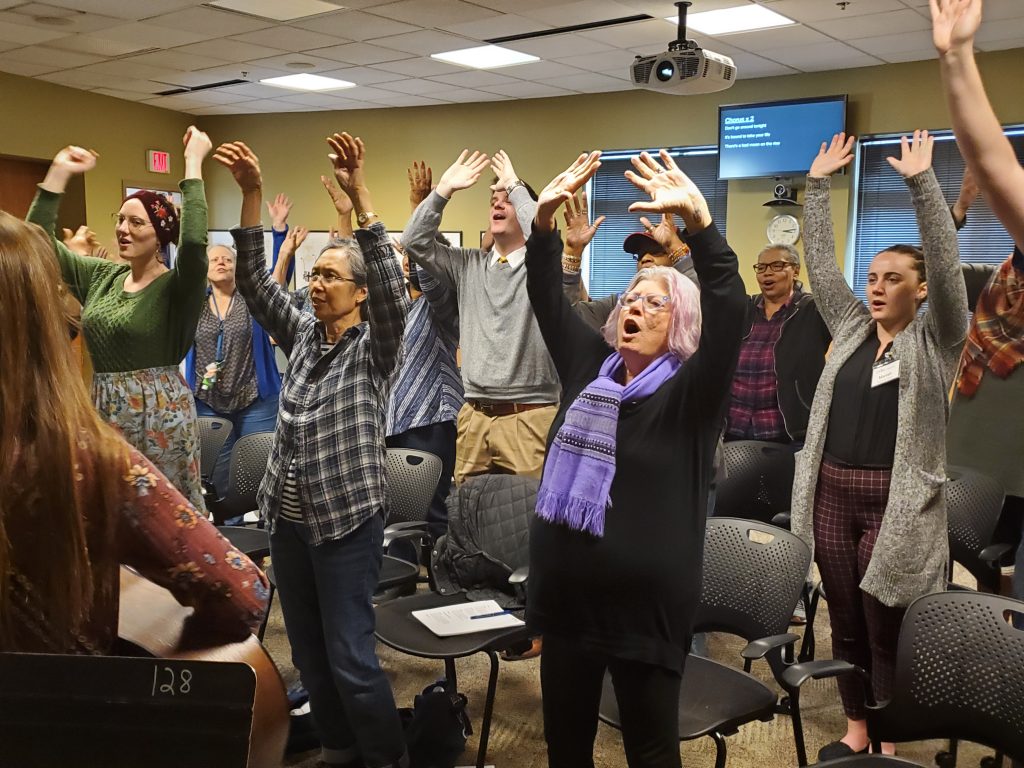What is music therapy?
Music therapy is the evidence-based use of music interventions by a Board-Certified Music Therapist (MT-BC) to address specific needs for individuals of all ages and diagnoses. Music therapy facilitates outcomes in cognition, speech and communication, physical, psychological, and social functioning. In other words, a music therapist uses music to facilitate non-musical outcomes.
Research supports the use of music therapy for the following outcomes:
- Decrease pain perception after a surgical procedure
- Increase coping with terminal and/or chronic illness
- Regain speech after a stroke
- Stimulate memory recall for individuals with dementia
- Facilitate academic skills within a school setting
- Increase attention for individuals on the Autism Spectrum
Individuals seeking to become a music therapist must complete a degree program approved by the American Music Therapy Association. Preparation for professional practice involves exceptional musicianship, strong interpersonal skills, and a commitment to working toward the well-being of others.


